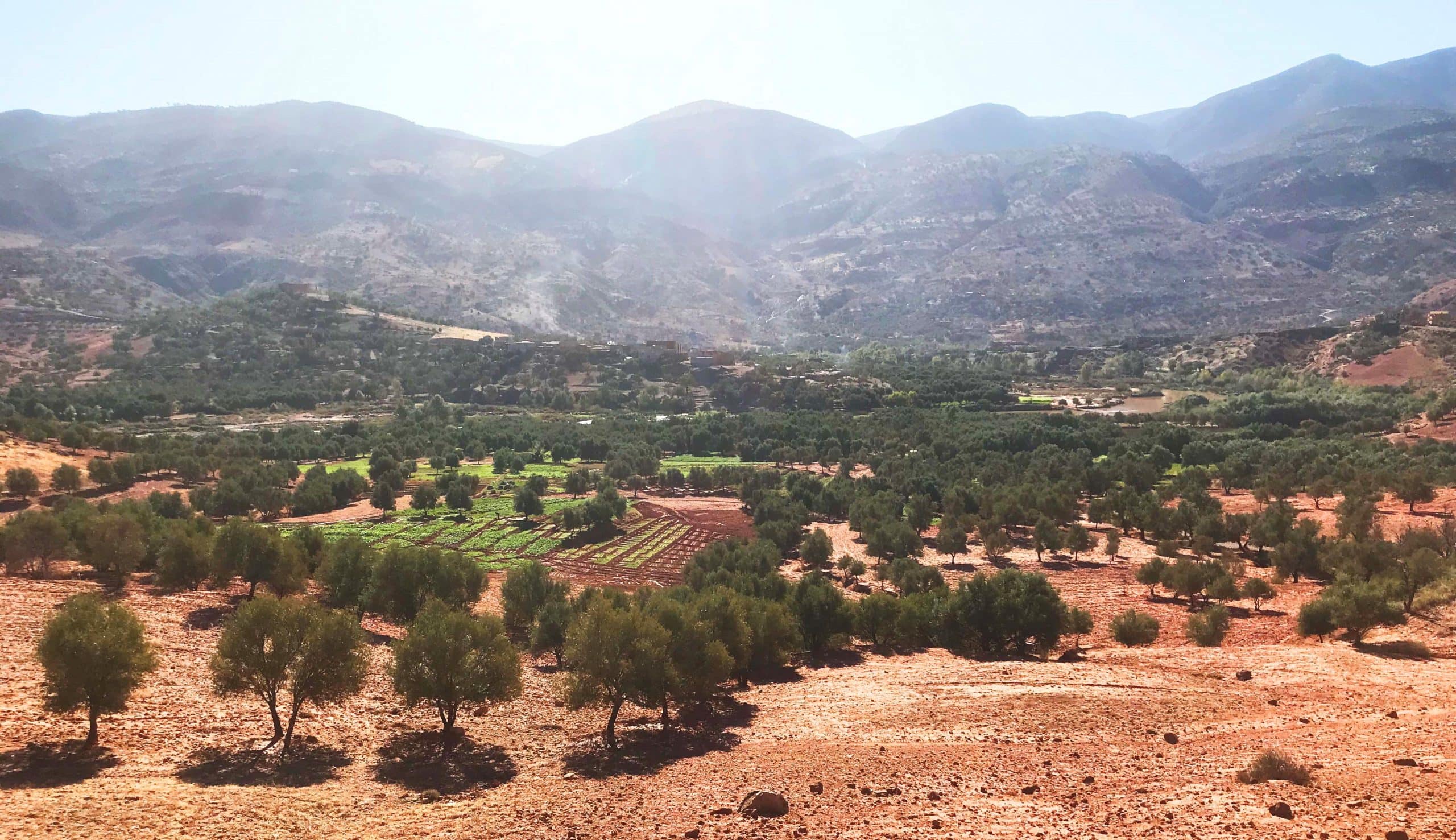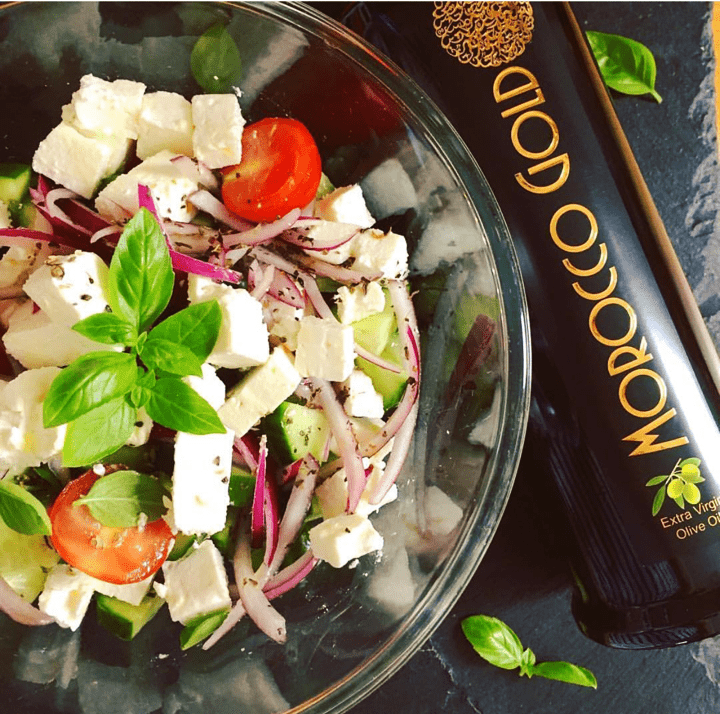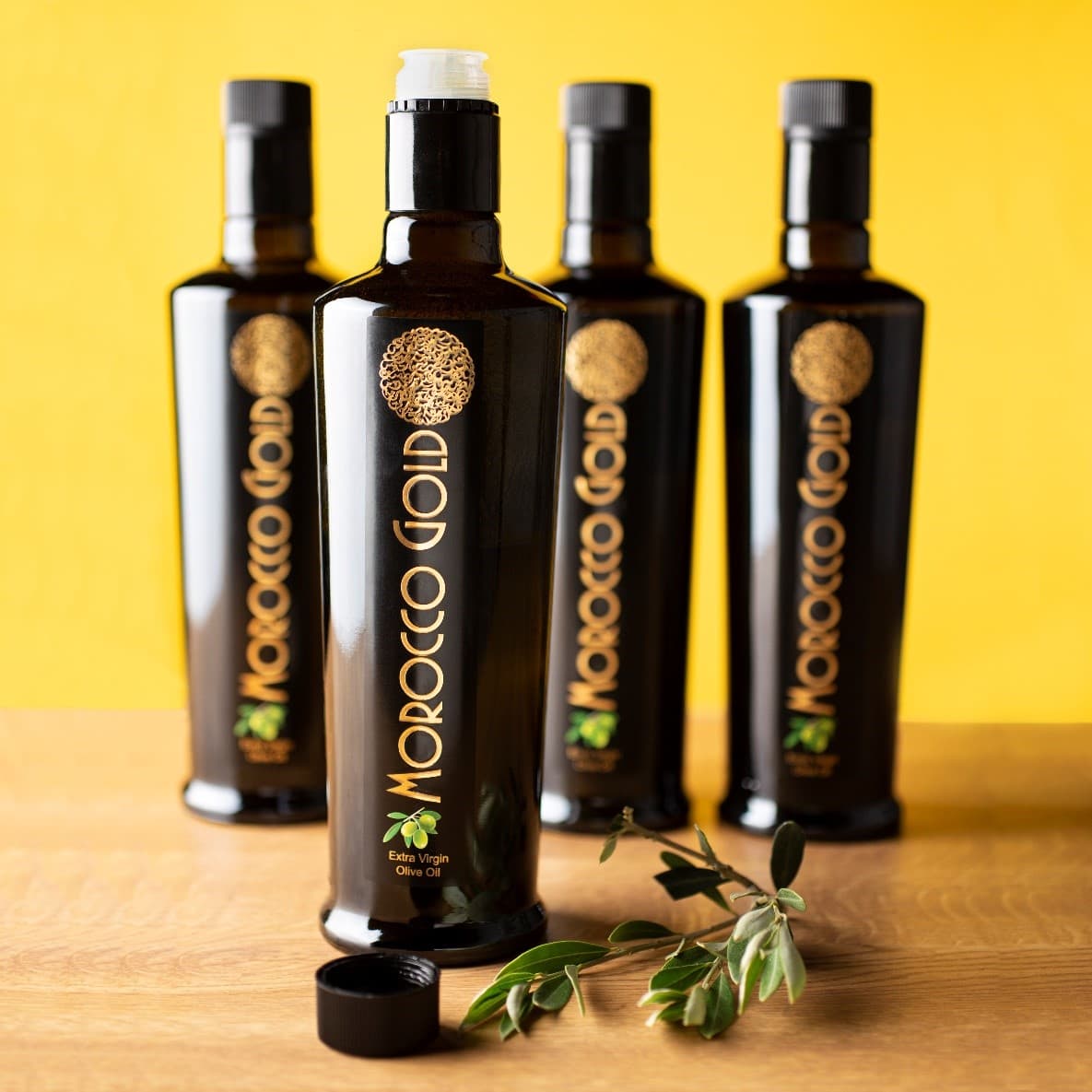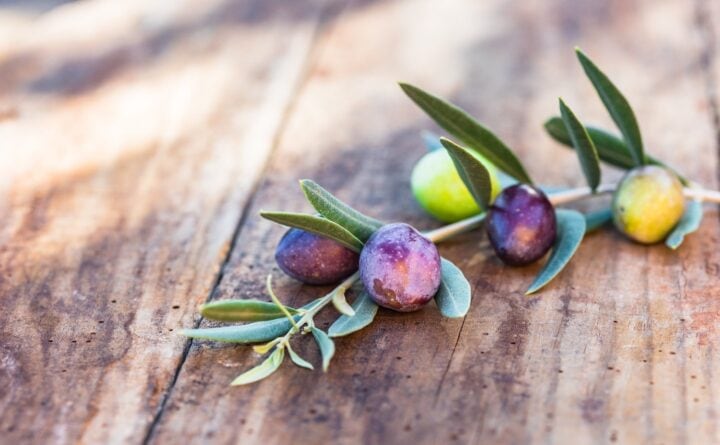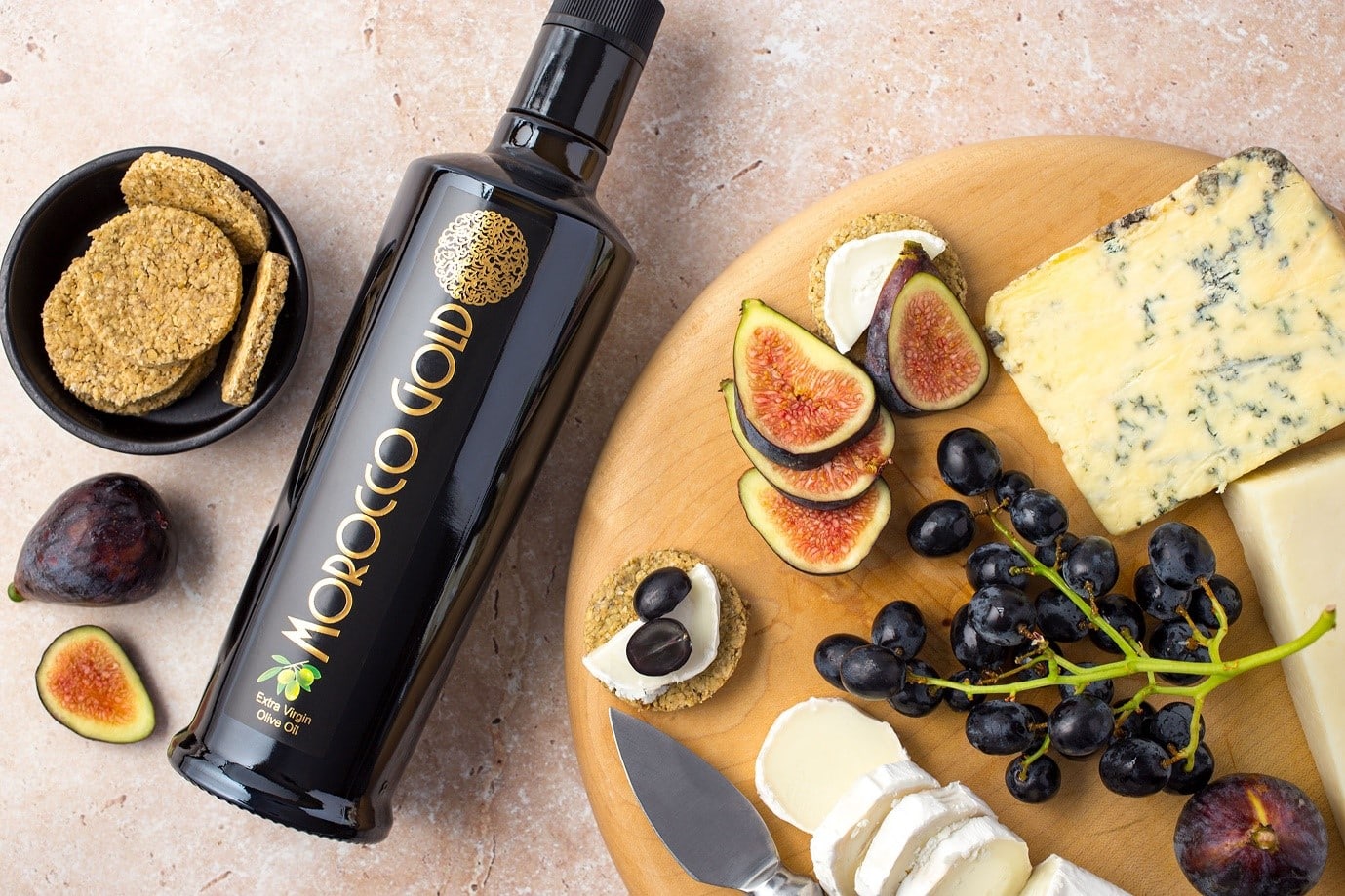The Secret Behind High Polyphenol Olive Oil
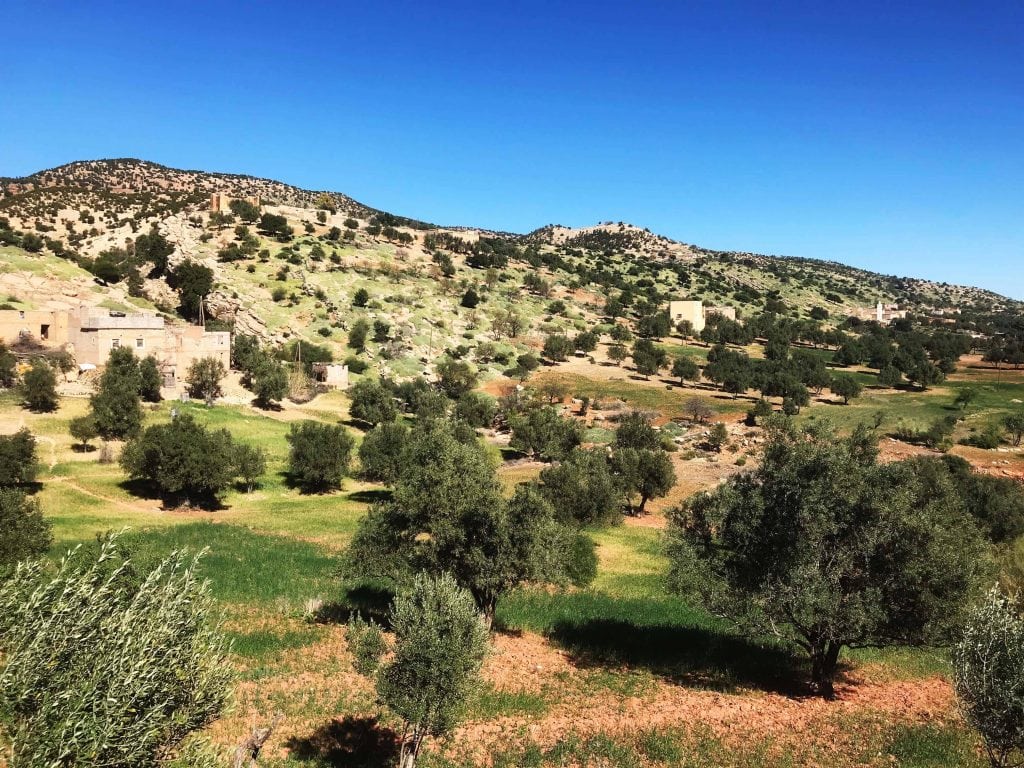
Why Moroccan Extra Virgin Olive Oil
Moroccan extra virgin olive oil is gaining popularity amongst health-conscious consumers and for good reason. This olive oil is produced from the finest olives, grown in the lush and bountiful terrain of Morocco. With its rich flavor and numerous health benefits, it has quickly become a staple in many kitchens. Extra virgin olive oil is an essential ingredient in many cuisines, and Moroccan olive oil is no exception. It has a distinct nutty flavor that is a perfect ingredient for salads, dips, and marinades. Not only is this oil delicious, but it is also rich in antioxidants and has anti-inflammatory properties. No wonder health-conscious consumers are turning to Moroccan extra virgin olive oil as a healthier alternative to other oils. The demand for this oil continues to grow, and this trend shows no sign of slowing down. Try Moroccan extra virgin olive oil today and see for yourself why it’s the talk of the town amongst foodies and health enthusiasts alike.
In short: The quality of extra virgin olive oil depends on its variety, soil, climate, and careful cold extraction — all key to preserving polyphenols and achieving low acidity.
Polyphenol Rich Olive Oil
There’s a lot of debate about what makes the best olive oil. Some people swear by oils that are cold-pressed, while others prefer those that are harvested early in the season. But the quality of production is one of the most important factors that contribute to the quality of the oil. This is because it can ensure that the highest possible levels of polyphenol count is preserved in the process.
The high polyphenol content of Morocco Gold Extra Virgin olive oil is dependent on three factors. Firstly, the variety of the olive. Secondly, the climate and terroir of the growing region. Thirdly, the time in the growing season and the harvest of the crop.
Polyphenols are powerful antioxidants that protect the oil’s flavour and health benefits — their levels depend on olive variety, ripeness, and extraction temperature.
The exceptionally high quality of Morocco Gold extra virgin olive oil is the result of care and attention to detail throughout the entire production process.
This results in a truly premium quality extra virgin olive oil with a very high polyphenol count and low acidity – a benefit to both the taste and health benefits of the olive oil.
In fact, this year’s 2022 Harvest of Morocco Gold has a truly exceptional polyphenol count of 626mg/kg and an acidity level of 0.32% – enviable by any standards!
Quality Olive Oil Production Starts With The Soil
The specific soil conditions of Morocco’s Beni Mellal region, together with the mild winters and summers, caressed by hot winds from the Sahara, make ideal growing conditions for Morocco Gold olives. The existence of centenary trees and traditional presses (maasras) testify to the longevity of olive cultivation in this area.
Ground work and tillage is carried out once or twice a year: once in winter to facilitate rainwater infiltration into the soil, and in spring to rotate the soil.
Planting is done at the beginning of spring. There is some permitted intercropping of cereals, also almond trees, that contribute to the hint of almonds in Morocco Gold.
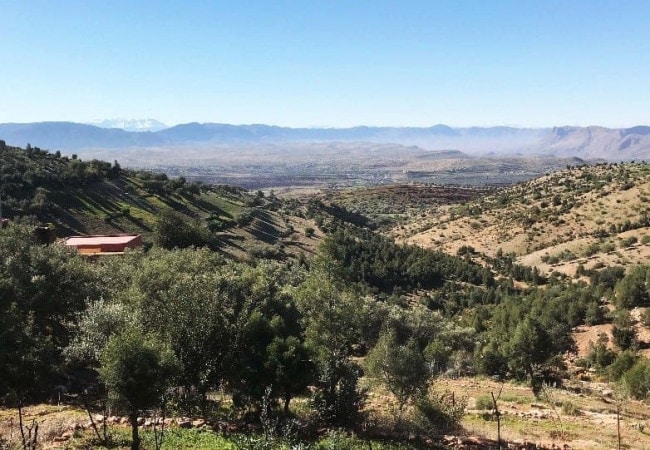
In addition to natural rainfall, which is generally sufficient in the geographical area, trees are irrigated as needed during the period of vegetation of the olive tree, normally until the end of September.
Fruiting sizing and assessment of the maturity of the olive is carried out annually. The planned date of harvest is agreed based on the maturity index of the olives, also the generations of experience of the olive farmers. Harvesting will then normally take place between the end of October and beginning of December.
In short: Exceptional olive oil starts with living soil — rich, balanced, and perfectly irrigated to sustain olive trees for generations.
Harvesting Of Morocco Gold Extra Virgin Olive Oil
Morocco Gold olives are harvested by hand using flexible combs. Nets and tarpaulins are placed on the ground to avoid contact between the olives and the ground. . Our olives are picked when the fruit is young and green. As the olives age on the tree, the colour of the olive changes to red and then black. The olive increases in size producing more oil, but the polyphenol level decreases. Within the farming community there is long experience. Furthermore, to maximise the polyphenol levels we harvest our olives at the optimum time.
This traditional hand-picking method prevents bruising and ensures only the freshest, nutrient-rich olives are pressed within 24 hours.
Aerated boxes are used for the immediate transport of the harvested olives from the orchard to the crushing unit. On receipt, the olives are checked to ensure their quality, in particular color and appearance, any defective or malformed olives.
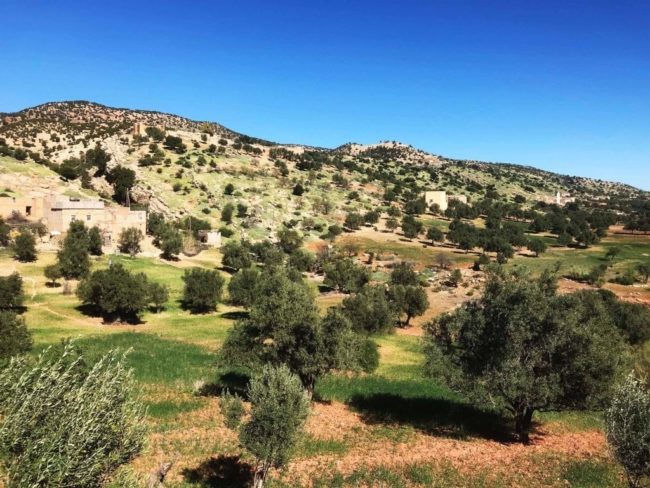
The olives will then pass through a stripper to removes any impurities. They are then washed and drained before processing. Leaf stripping and washing eliminate impurities, whether of vegetable origin such as leaves, twigs or mineral matter such as dust, earth, stones and other solids. Washing not only improves the quality of the product but also extraction efficiency.
Extraction of oil is carried out in a two-phase continuous process. This minimizes handling of the olives and maintains strict control of hygiene.
Grinding of the olives is carried out using a metal hammer mill which is made of stainless steel. The paste obtained then undergoes a kneading or malaxation process which is the fundamental operation to separate the solid and liquid phases. This kneading operation is carried out for 40 to 50 minutes at temperatures not exceeding 28 ° C. In this way, the extracted oil may be labeled: cold-extracted oil or cold pressed oil.
The well-kneaded dough is sent to a horizontal decanter where the continuous and simultaneous separation of the oil and wet cakes is achieved by a combination of centrifugal force and of the rotation of a conveyor screw which rotates inside the bowl.
The time between harvest and pulping does not exceed 48 hours. Morocco Gold extra virgin olive oil is unfiltered to retain all of it’s natural properties and goodness. Nothing is added or taken away so that it is the result of the soil, the sun and the rain only.
The Morocco Gold Production Process at a Glance
- Soil preparation: Enriched and rotated to enhance root strength.
- Spring planting: Hand-planted Picholine Marocaine olives.
- Careful irrigation: Sustained rainfall supplemented naturally.
- Hand harvesting: Young green olives picked early to maximise polyphenols.
- Cold extraction: Pressed below 28°C using a two-phase system.
- Minimal handling: Oil separated, stored in stainless steel tanks.
- Unfiltered bottling: 100% natural oil, free from additives or blending.

